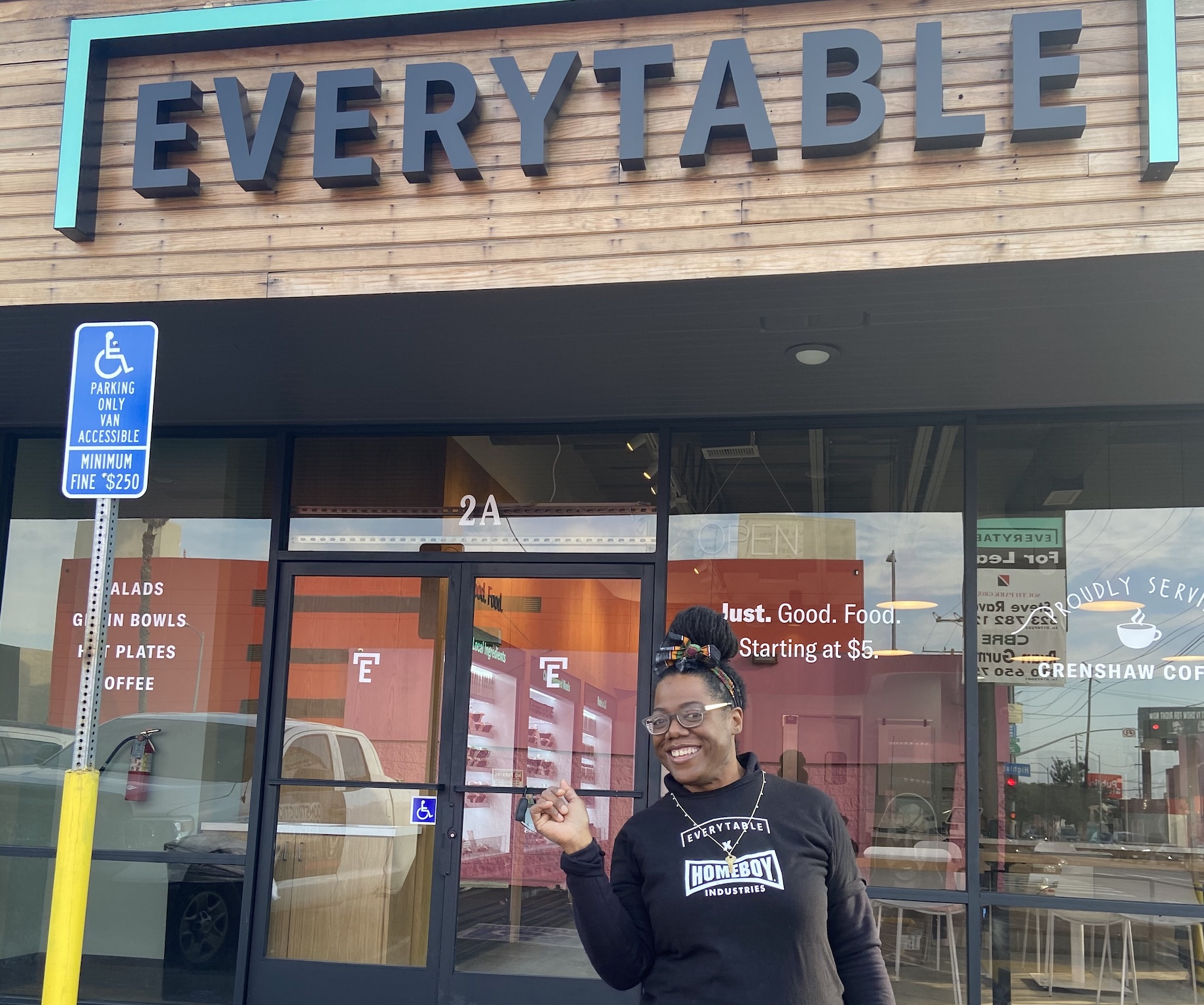Grab-and-go chain Everytable intends to open 40 stores in and around Los Angeles in the next two years, 25 in 2021 alone. It also is seeking at least 10 sites in New York City in the near term. That would make New York the company’s first expansion market, taking advantage of availability and affordability that are rare in the city. Everytable, with its strong food justice and social equality mission, prepares healthy meals in a central kitchen, then sells them at its retail outlets and through other distribution channels, adjusting prices based on the demographics of each neighborhood, from affluent communities to food deserts.
Over the next five years, Everytable foresees outlets in major coastal markets, as well as Chicago, the Southeast, Texas and the upper Midwest. “It’s a pretty robust plan, but [in Southern California], we have 10 deals signed, eight more about to be signed and 25 [letters of intent] in various stages,” said Mark Seferian, a restaurant industry veteran and vice president of real estate development for Everytable. “At the same time, we’re negotiating LOIs in New York City. Our argument is that our hub-and-spoke system allows us to plan, permit and build a lot quicker than other types of food operators.”
Seed funding and training for franchisees of color
Perhaps the most novel part of the expansion plan — certainly it’s the most progressive — is that graduates of the Everytable Social Equity Franchise Program will own and operate the majority of the stores. Launched midway through 2020, the program gives entrepreneurs of color who traditionally have lacked access to capital the financial means and training to become franchisees. Four foundations combined to provide $4.5 million in program-related investments, which unlike grants typically are paid back at below-market interest rates. The Kroger Co. Foundation also provided a $1 million grant.
The Social Equity Franchise Program is still in development, but Everytable recently named Dorcia White-Brake the first franchisee candidate. She met and began working with Everytable founder Sam Polk soon after he launched the nonprofit Feast, formerly Groceryships, eight years ago. Feast levels the healthy nutrition playing field for underserved neighborhoods through education and increasing healthy food availability.

The Everytable Social Equity Franchise Program’s first franchisee candidate, Dorcia White-Brake, at the Hollywood Everytable she’s currently managing
Polk eventually brought White-Brake onto Feast’s board, and after he launched Everytable in 2015, he asked her to work there. At the time, the mother of three was juggling a full-time job as a teacher’s assistant, working on two associate degrees and running her own small business supporting events on the side. Still, she began to work two shifts a week and later began to manage the Watts location at Polk’s request.
When he asked her to become a Social Equity Franchise Program candidate and explained how the program worked, she welled up. “Every time Sam had asked me to do something in the past, I had to think about it. This time, I was ready to say yes immediately, but he wanted me to take a couple of days before giving him an answer,” recounted White-Brake, who is running an Everytable location in Hollywood that will become hers upon the completion of the program. “But after a couple of days, nothing changed in my mind, and I sent him a long, sobby email saying, ‘Yes, please. I want to do this.’”
In February, White-Brake began her franchise program training. The curriculum focuses on finance, accounting, inventory management, human resources, marketing, leadership and communication, says Bryce Fluellen, who became executive director of Everytable’s Social Equity Franchise Program in September. Like White-Brake, he met Polk through Feast several years ago. A chef by trade, Fluellen was working at the time at the American Heart Association in Los Angeles to promote healthy cooking and nutrition to young parents. He worked there until he joined Everytable in September.
Fluellen anticipates that internal candidates like White-Brake will complete the training in about six months, while those coming from outside the company may take 12 months. Upon graduating, the franchisees will borrow from the capital provided by the foundations to pay for store buildouts, which cost roughly $200,000. The franchisees won’t begin repaying the loans until their stores become profitable. What’s more, the franchisees are guaranteed an annual salary of $40,000 for their first three years in business, as well as ongoing training support.
As news of the social equity program has spread, no less than six emails arrive daily from people interested in becoming a candidate, Fluellen adds. “This is pretty exciting when you consider that a lot of folks who have the business acumen, the hustle and the entrepreneurial spirit never before had the access to capital to become a franchisee under the traditional model. The same way we’re making nutritious and delicious food more accessible at a price point that can’t be beat, we want to transform the franchise system and make it more accessible for people that have talent but not the capital.”
By Joe Gose
Contributor, Commerce + Communities Today